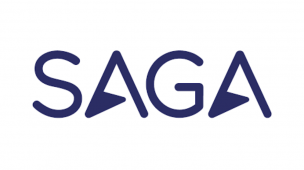InsurTech Ireland: Three takeways from May’s event
9 May, 2019
Oxbow Partners sponsored this week’s InsurTech Ireland meetup at Dogpatch Labsin Dublin. The meetup featured presentations from InsurTechs Slice and Zego, as well as from Aon’s Chief Commercial Officer in the UK, Martyn Denney.
Here are some thoughts from Dublin.
Zego and Slice: Accessing the digital economy
Philippe Lafrenier, Chief Growth Officer at Slice, was first up. Slice is a cloud platform (Supplier InsurTech) which allows insurers to offer innovative or non-standard products such as cyber or cover for the on-demand economy. Customers include AXA XL and Nationwide in the US. Philippe pointed to the fact that the world is heading towards “digital ecosystems” where companies integrate each other’s propositions for the benefit of their customers. Insurers need to be able to participate in these ecosystems, and Slice is a way of doing this.
Zego is also active in the digital economy. The company offers insurance to gig economy workers through platforms such as Uber Eats (Distribution InsurTech). The idea stemmed from COO Harry Franks’s experience as Global Head of Procurement at Deliveroo. Harry explained how the food delivery business found that many of the people signing up to its platform were unable ever to work because of problems obtaining insurance. Established only three years ago, the startup now has around 80 employees, operates in three locations and has exponentially increased its overall customer base – see the picture below. Zego was a member of the Oxbow Partners InsurTech Impact 25 in 2018.
 Insurers remain challenging partners
Insurers remain challenging partners
There was general agreement on stage that insurers remain challenging partners for InsurTechs. As one speaker said: “insurers love new products with ten years of claims history”. Martyn Denney argued that this protected the value of the broker long-term – InsurTechs need a strong advocate to help them get the capacity they need in the form that they need it.
This is an interesting angle. Brokers are normally absent from InsurTech discussions, leaving insurers to present themselves as the ‘enablers’ of innovation. If brokers establish themselves in the ‘partnership broking’ space (traditionally ‘placement’), then insurers could be reduced to being mere capacity providers for other people’s innovation (again). This is a theme we explored in our 2018 paper on the impact of technology on the commercial and specialty markets. It’s yet another reason why insurers need to ensure that they are transforming their businesses and thinking strategically about their future, rather than just playing ‘innovation theatre’.
Insurers in small markets are particularly challenged by tech-driven change
Ireland is a relatively small domestic market with general insurance premiums of around €3bn. Premiums are distributed amongst around ten players writing premiums of between €250m and €500m including Allianz, Aviva, AXA, FBD (a locally-owned player), RSA, Travelers, Zurich and AIG. In other words, no company in the market can afford to spend tens of millions on a change programme.
This has traditionally not been a problem as the market has found its equilibrium – but what is the impact of InsurTech? In a recent blog post we noted that some InsurTechs are maturing and raising large rounds to finance geographic or product expansion. It is likely that some of these companies will choose to attack European markets aggressively. Will they go for the large ones like Germany, the UK and France, or will they try the more traditional, smaller ones like Ireland or Austria?
The answer might depend on their ability to scale their models across borders. In another blog we argue that there is limited evidence that Distribution InsurTechs can scale their businesses across borders. For example, Lemonade does not have physical operations in all the states in which it operates (remembering that the US is regulated as around 50 jurisdictions). Zego has launched propositions in multiple countries. In other words, if it is easy to ‘spin up’ a business in Ireland and Austria, then this might be an attractive strategy for InsurTechs – and could be an uncomfortable for domestic markets. Time will tell.



